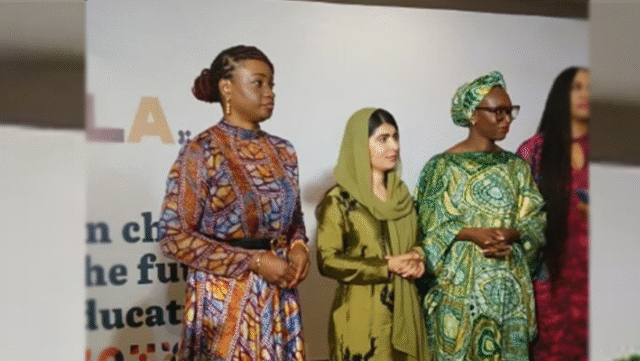The Federal Government has restated its commitment to improving the welfare and professional status of teachers across Nigeria, describing them as the backbone of national development and innovation.
Speaking at a symposium ahead of World Teachers’ Day, the Minister of Education, Dr Tunji Alausa, said teachers remain the single most important factor in shaping Nigeria’s future workforce. But he acknowledged that the teaching profession has for too long been undervalued, underfunded, and isolated from broader policy conversations.
Table of Contents

Collaboration as the New Model
Dr. Alausa emphasised that the era of teachers working in silos is over. With the rise of digital learning, new teaching methods, and the urgent need to raise educational standards, collaboration must become a central part of professional life.
“Teaching is no longer about one teacher carrying the load alone,” he said. “We must build a culture of collaborative professionalism where educators mentor, share knowledge, and innovate together. When teachers collaborate, students learn better, and our nation gains stronger citizens.”
This shift aligns with the 2025 World Teachers’ Day theme, “Recasting Teaching as a Collaborative Profession.” The Minister explained that collaboration is not just a buzzword but a necessary strategy for tackling systemic challenges in Nigeria’s education sector.
Addressing Teacher Welfare
Beyond collaboration, the government placed welfare at the heart of its renewed pledge. Dr. Alausa highlighted several key interventions under review:
- Better salaries and allowances to reflect modern teaching responsibilities.
- Institutional support systems such as peer mentoring, digital platforms for knowledge exchange, and regular in-service training.
- Recognition and incentives to celebrate excellence in the profession.
- Stronger regulatory backing through the Teachers’ Registration Council of Nigeria (TRCN) to enforce standards and continuous professional development.
He stressed that quality education begins with motivated teachers: “Good teachers produce excellent students. If we invest in teachers, we invest in the nation’s future.”

A Difficult History
The reaffirmation comes at a critical time. Nigerian teachers have long faced delayed salaries, poor infrastructure, and heavy workloads. In many rural areas, they struggle with overcrowded classrooms, inadequate learning materials, and a lack of career progression opportunities.
Such conditions have fuelled frequent strikes and a growing sense of disillusionment within the profession. Education advocates argue that unless government commitments translate into visible action, these challenges will continue to undermine both teacher morale and student performance.
Symposium Highlights
At the Abuja event, stakeholders across the sector proposed reforms to re-energise the teaching workforce. Among them:
- Peer Learning Networks to foster communities of practice within schools.
- Digital collaboration platforms connecting teachers nationwide.
- Cross-state teacher exchanges to diversify exposure and pedagogy.
- Awards and recognition systems to motivate high performers.
- Clearer accountability structures to ensure reforms don’t stall.
Civil society groups also stressed the need to prioritise teachers in underserved communities, warning that inequality in support and resources could widen the education gap.
What Still Needs to Be Done
While the reaffirmation was widely welcomed, concerns remain about execution. Education experts argue that funding, continuity across administrations, and federal-state coordination will determine whether these promises bear fruit.
Without adequate budgets, welfare initiatives risk becoming symbolic. Similarly, inconsistent policies between federal and state governments could weaken reforms. Teachers’ unions also reminded the government of past pledges that failed due to bureaucratic delays.
Transparency, they argued, will be critical. Publishing timelines, budgets, and progress reports would help restore trust between teachers and the government.
Teachers’ Voices
Though largely symbolic, the event sparked cautious optimism among teachers. One Abuja-based teacher told journalists that while she appreciated the renewed rhetoric, “what we need are concrete actions—regular pay, training opportunities, and real recognition, not just speeches.”
Another veteran educator added: “Collaboration is good, but you can’t collaborate when you’re hungry or unpaid. Welfare must come first, or everything else collapses.”

Looking Forward
By linking welfare to collaboration, the Federal Government is attempting to reposition teaching as a respected, professionalised career path. The strategy reflects global best practices under UNESCO and ILO guidelines, which emphasise fair pay, decent working conditions, and professional autonomy.
For Nigeria, the stakes are high. With a youthful population and growing demand for quality education, the country’s development depends heavily on its ability to retain, motivate, and empower teachers.
If followed through, today’s reaffirmation could mark a turning point. But if neglected, it risks being remembered as another well-intentioned promise.
As World Teachers’ Day approaches, one truth remains clear: Nigeria’s teachers deserve more than words. They deserve the tools, support, and dignity required to shape the nation’s future.
Join Our Social Media Channels:
WhatsApp: NaijaEyes
Facebook: NaijaEyes
Twitter: NaijaEyes
Instagram: NaijaEyes
TikTok: NaijaEyes
READ THE LATEST EDUCATION NEWS














![Heartwarming Moment: Priscilla Ojo and Son Rakeem Reunite with Juma Jux in Tanzania [VIDEO] Priscilla Ojo](https://naijaeyesblog.com/wp-content/uploads/2025/09/Reunited-Priscilla-Ojo-says-as-she-celebrates-son-Rakeem-one-month-Kemi-Filani-blog-min-768x512-1-1-180x135.avif)

























